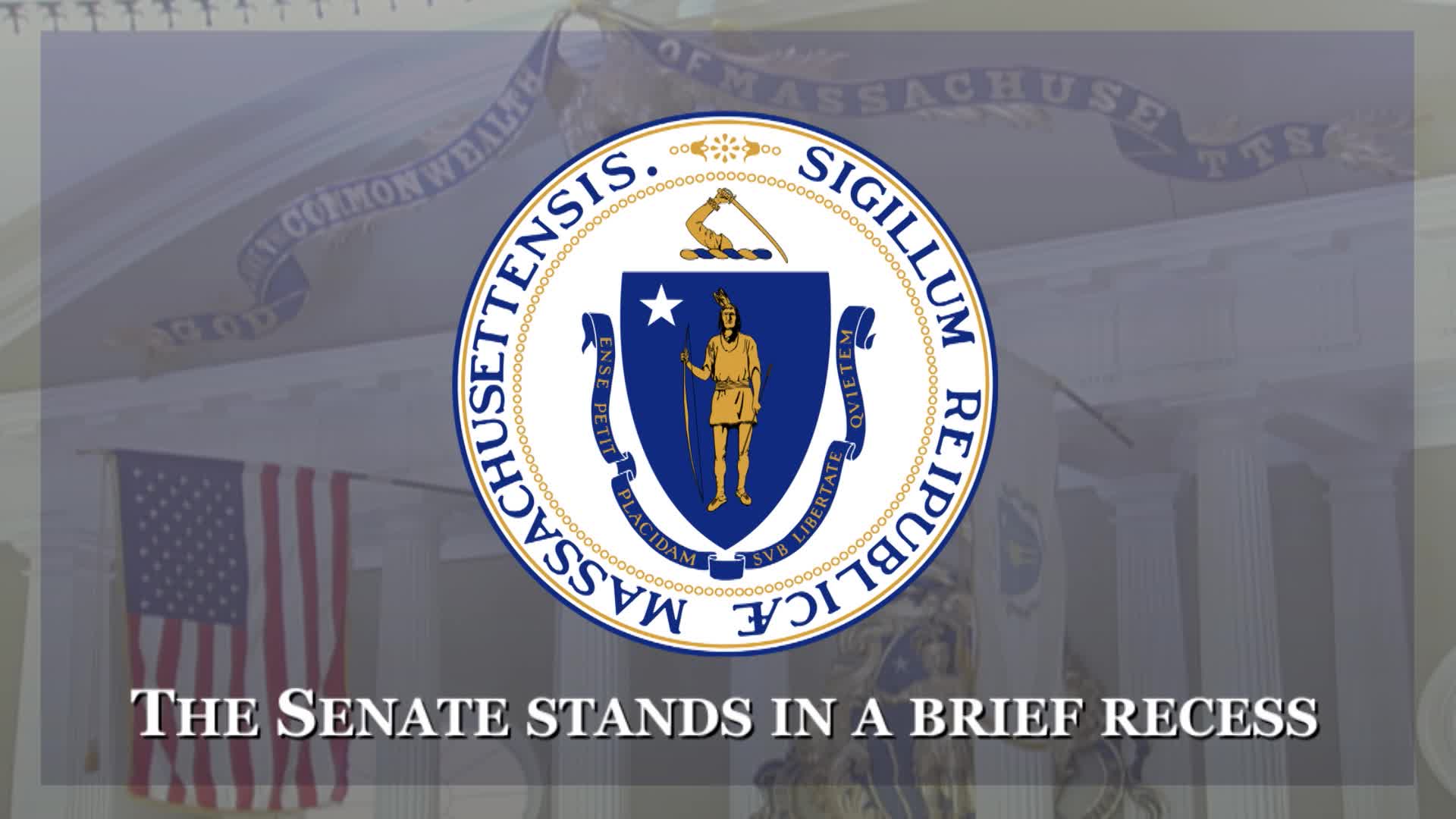Mass. Senate passes sick-leave bank for corrections employee, Weston spending and Dorchester procurement exemption
September 29, 2025 | 2025 Legislature MA, Massachusetts
This article was created by AI summarizing key points discussed. AI makes mistakes, so for full details and context, please refer to the video of the full meeting. Please report any errors so we can fix them. Report an error »

The Massachusetts Senate passed three bills to be enacted, approving an act to establish a sick‑leave bank for a Department of Correction employee, authorizing spending for the select board of Weston, and exempting certain affordable housing and a branch library space in Dorchester from public procurement laws.
The measures—House Bill H4426 (establishing a sick‑leave bank for Paul Starbowski), H4158 (Weston spending) and H4532 (procurement exemption for Dorchester)—were read before the Senate and then put to final passage. The presiding officer called for the question: “All those in favor say aye.” The chair then said, “The ayes have it,” and the bills were passed to be enacted and will be signed by the president and laid before the governor for approval.
Why it matters: the sick‑leave bank affects a specific employee’s leave benefits administered under the Department of Correction; the Weston spending measure authorizes municipal expenditures; and the Dorchester measure removes certain affordable housing and publicly accessible library space from state procurement rules, changes that may alter how those projects are procured.
The action was procedural and final at the Senate level: the bills were passed to be enacted and transmitted to the governor. The transcript records no roll‑call vote for the final passage; votes were taken by voice as recorded by the chair.
Details from the record: the sick‑leave bank was identified as House Bill 4426 and associated on the floor with the Department of Correction employee named in the bill text. The Senate president (the presiding officer) and the clerk handled the readings and certification that the bills would be signed and sent to the governor.
Next steps: the bills proceed to the governor’s office for possible approval or veto; the legislative record indicates formal enactment is pending gubernatorial action.
The measures—House Bill H4426 (establishing a sick‑leave bank for Paul Starbowski), H4158 (Weston spending) and H4532 (procurement exemption for Dorchester)—were read before the Senate and then put to final passage. The presiding officer called for the question: “All those in favor say aye.” The chair then said, “The ayes have it,” and the bills were passed to be enacted and will be signed by the president and laid before the governor for approval.
Why it matters: the sick‑leave bank affects a specific employee’s leave benefits administered under the Department of Correction; the Weston spending measure authorizes municipal expenditures; and the Dorchester measure removes certain affordable housing and publicly accessible library space from state procurement rules, changes that may alter how those projects are procured.
The action was procedural and final at the Senate level: the bills were passed to be enacted and transmitted to the governor. The transcript records no roll‑call vote for the final passage; votes were taken by voice as recorded by the chair.
Details from the record: the sick‑leave bank was identified as House Bill 4426 and associated on the floor with the Department of Correction employee named in the bill text. The Senate president (the presiding officer) and the clerk handled the readings and certification that the bills would be signed and sent to the governor.
Next steps: the bills proceed to the governor’s office for possible approval or veto; the legislative record indicates formal enactment is pending gubernatorial action.
View full meeting
This article is based on a recent meeting—watch the full video and explore the complete transcript for deeper insights into the discussion.
View full meeting
